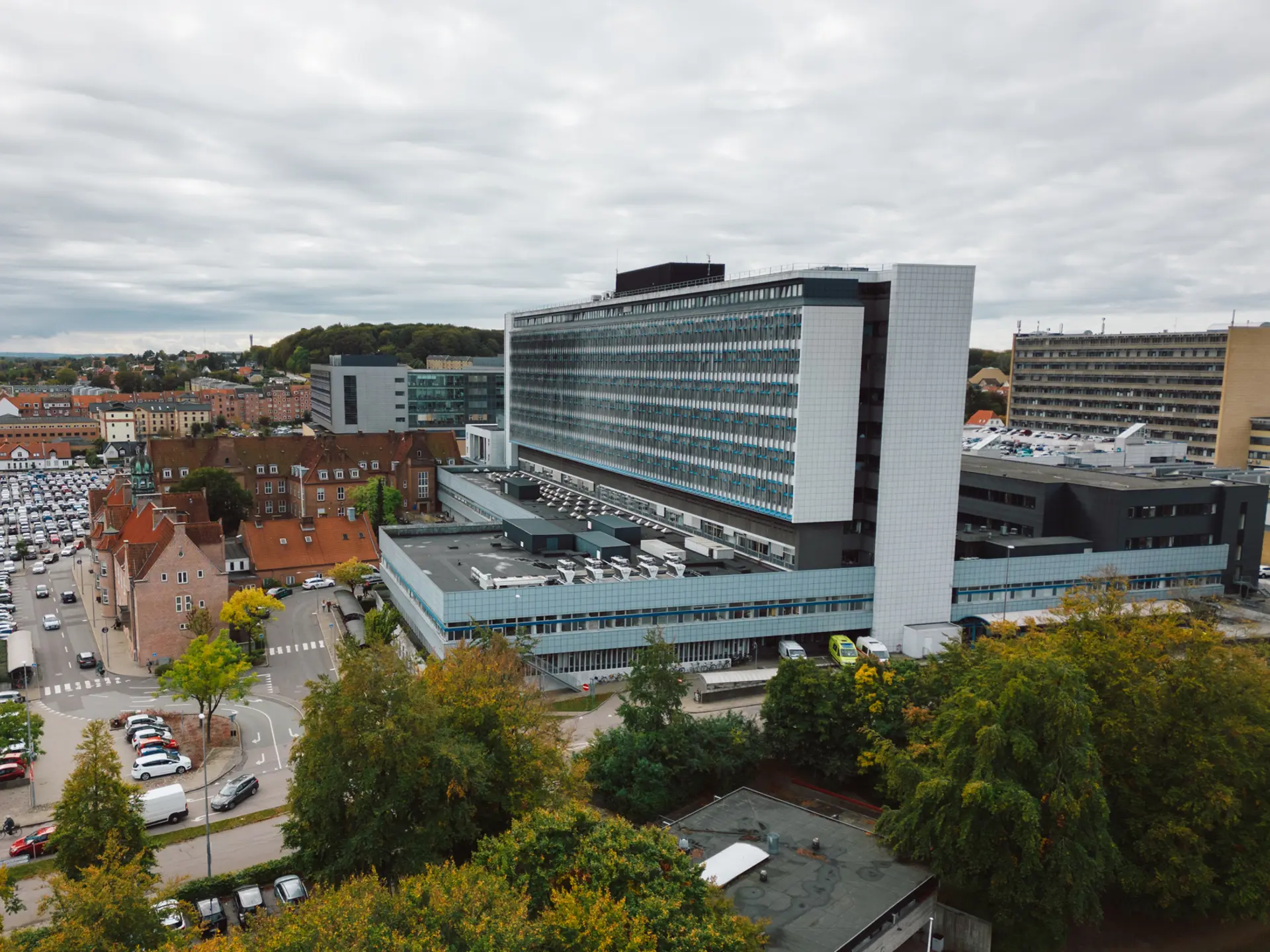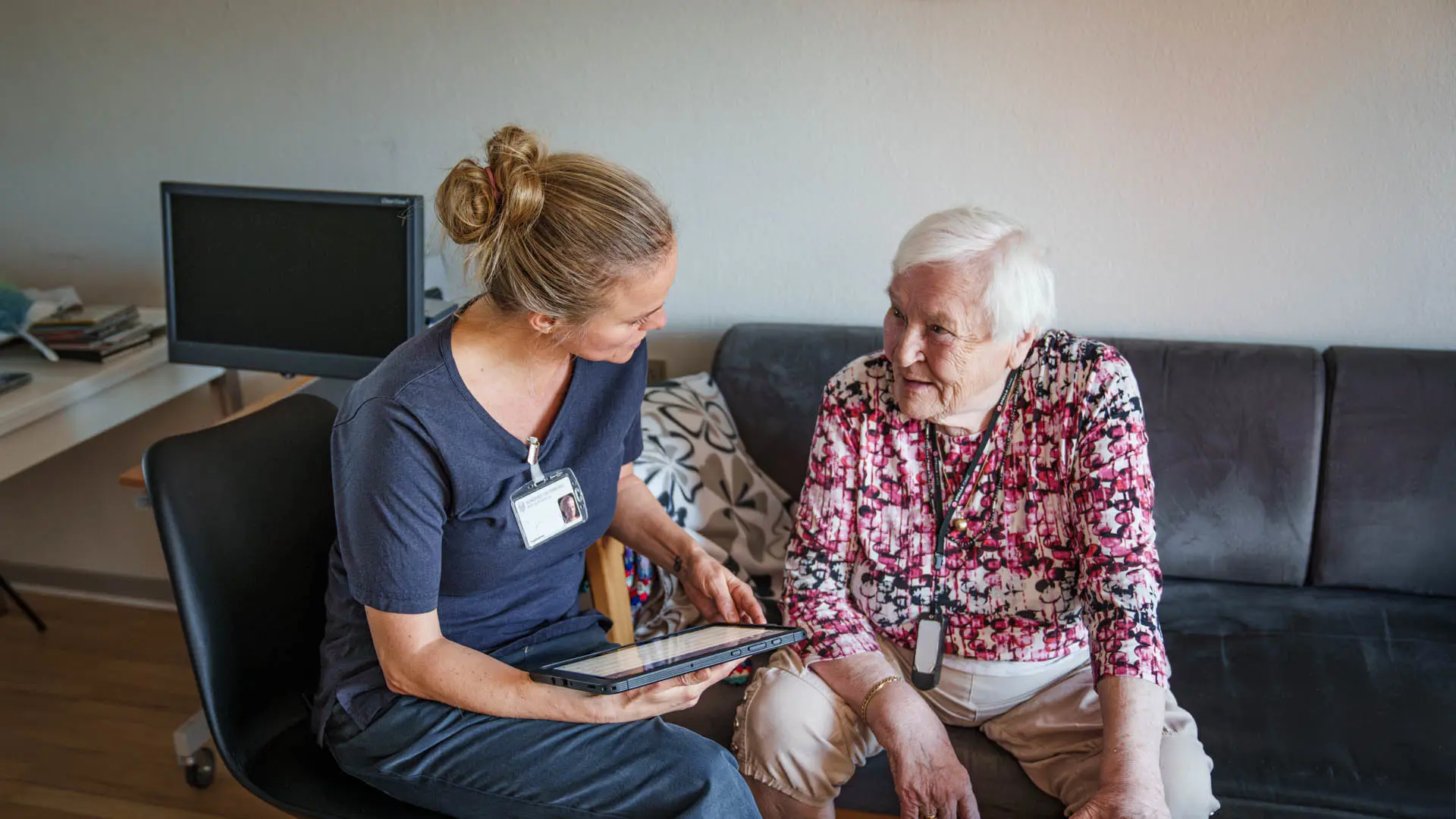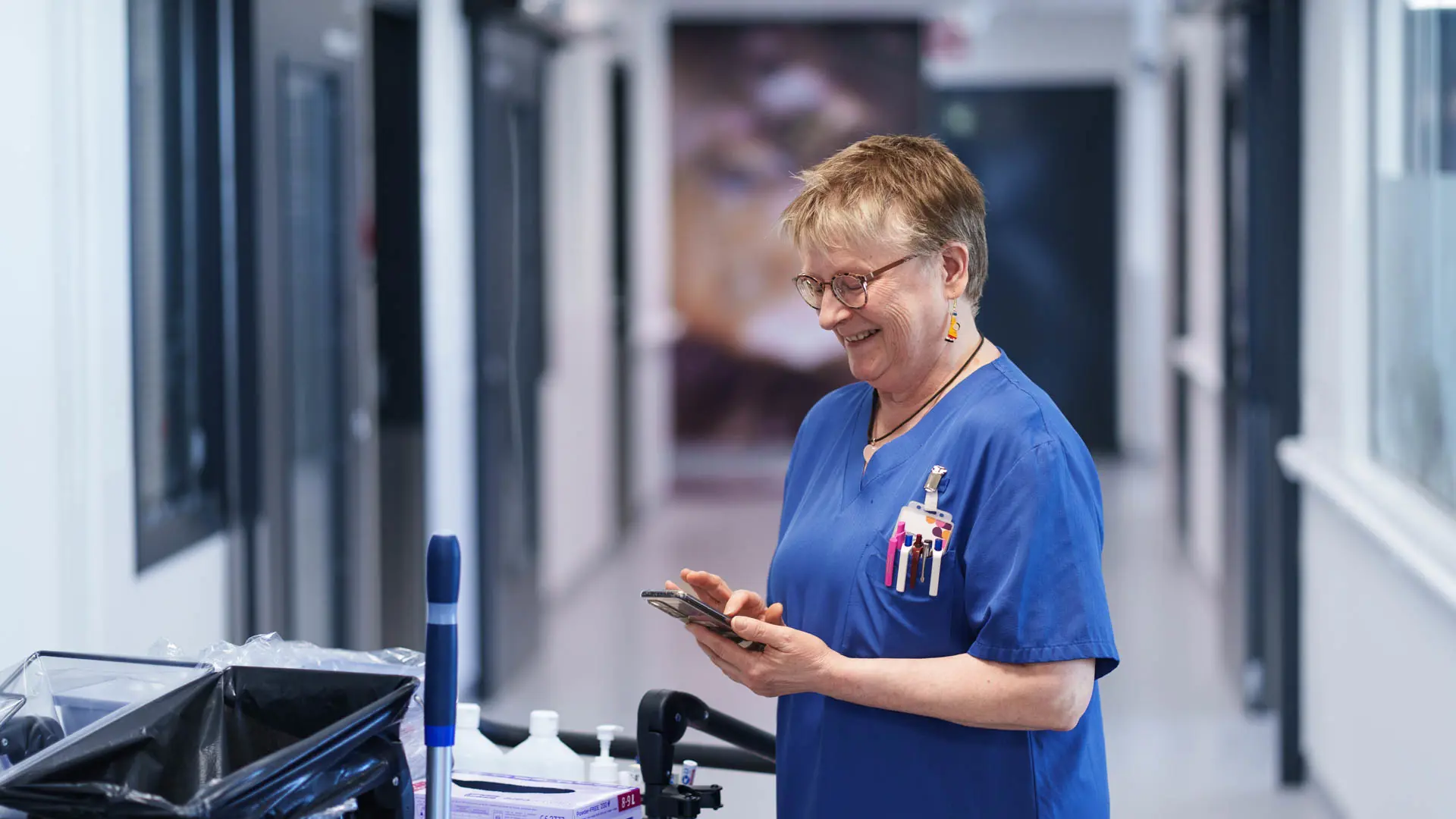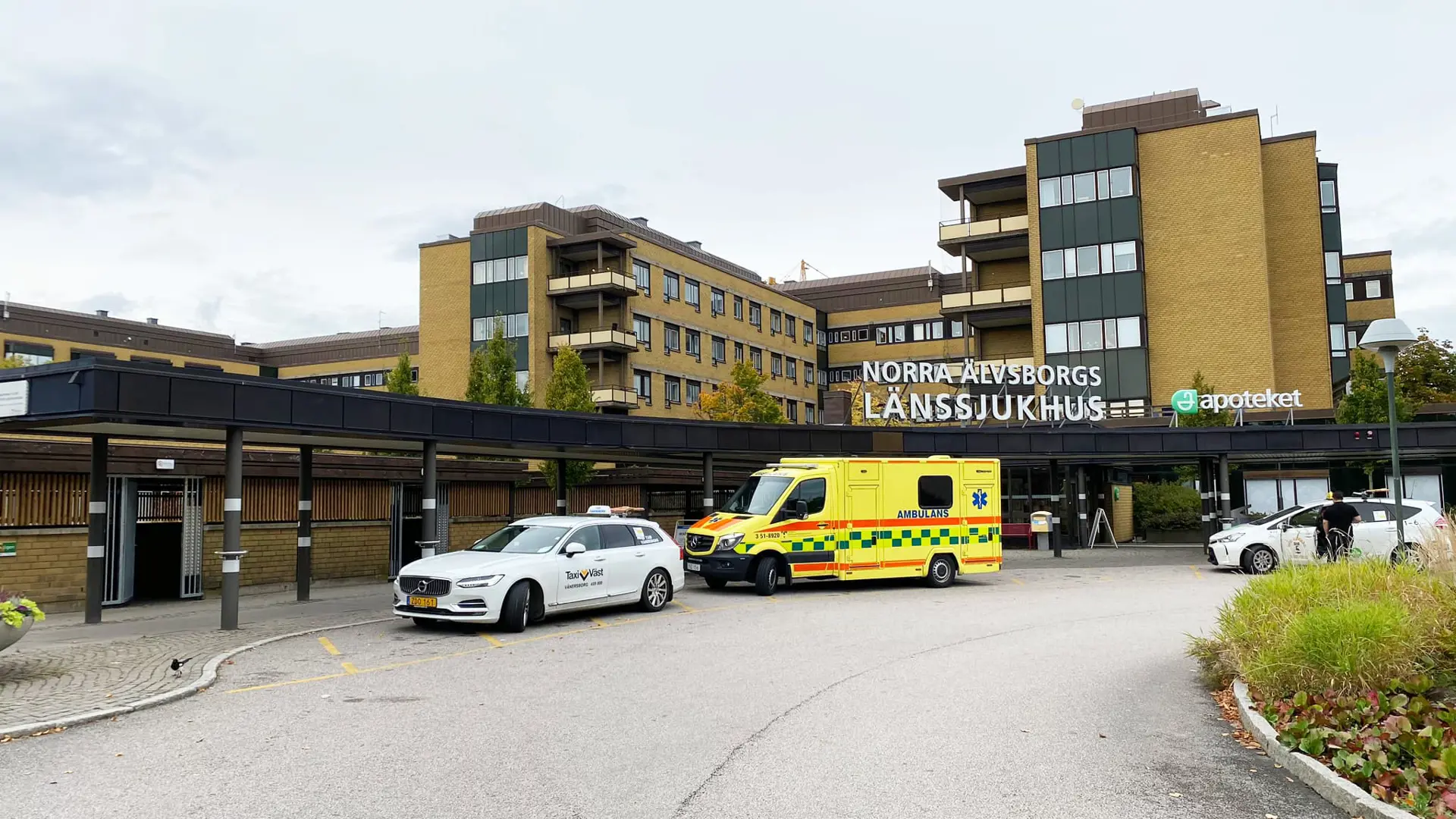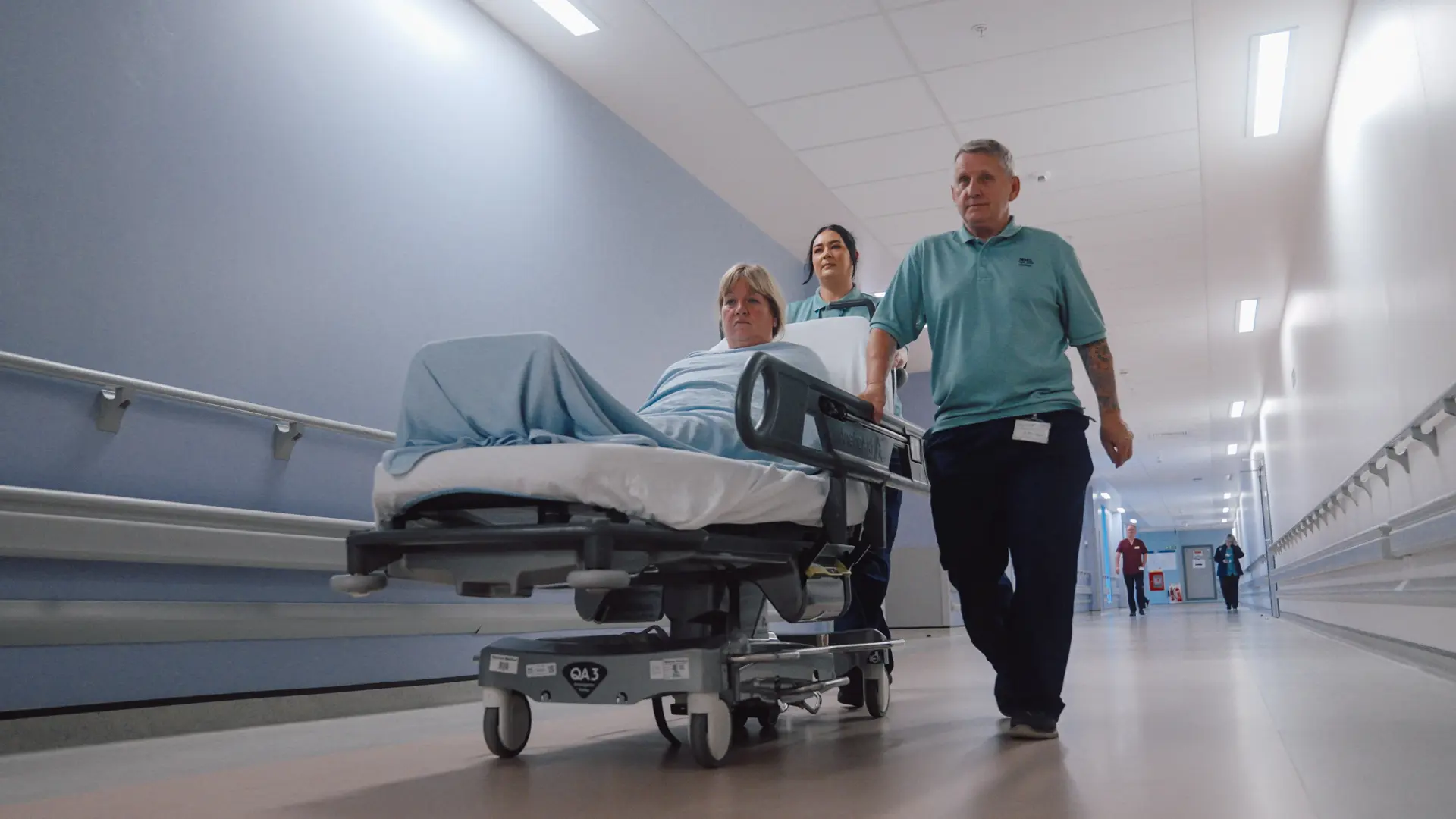Danish hospital is testing new technology for ordering service tasks
In a prototype test between North Denmark Region and Systematic, nurses at Aalborg University Hospital have tested a solution with NFC tags that makes it faster and easier to create service tasks in their digital system.
Since November 2021, three selected wards on the South section of Aalborg University Hospital have been in the process of testing a prototype that will optimise their handling of service tasks. The service staff at Aalborg University Hospital already use Systematic's digital task system to handle tasks such as ordering a clean hospital bed, removing a bed or cleaning the hospital room.
The new prototype solution builds on top of the existing Columna Flow Clinical Tasking solution and consists of an app in which service tasks are continuously created while the hospital staff walk around the hospital corridors and rooms. The users - who in this case are nurses - can use the smartphone they have been given to scan an NFC tag that is physically attached to e.g. the wall above a bed or at the entrance to one of the hospital rooms. The nurse then scans the NFC tag with her phone, after which the app presents the different types of task orders that are relevant for that particular NFC tag.
NFC stands for Near Field Communication and is a technology that makes it possible to connect compatible devices to each other.
One click from need to deed
With a single click nurses can create new tasks, thereby eliminating the need to write down the task details, go back to a desktop PC, log in and manually set up the order in the system. In this regard, the process has become more efficient and simpler as staff can immediately, as they identify the need, order new tasks with very few clicks and while they are on the go.
With just a few clicks you can order not just one task, but a task package if it is relevant for the specific NFC tag. This means that the user only has to press and order once to have both the hospital room cleaned and the bed removed.
"The new NFC tags have made it much easier to create a task as soon as you discover the need for it. I've got a much better overview, and don't have to remember all the tasks and spend time on going back to the PC to create them," says Maiken Schjerlund, Nurse at Aalborg University Hospital (8Ø, Renal Medicine and Rheumatology).
According to Lars Esko, Operations Manager at Aalborg University Hospital, the solution contributes to keeping healing hands where they belong. The solution ensures that the process of ordering tasks is as easy as possible ensuring that the nurses can have more time with the patients.
Word of the positive results from the prototype course have spread to other departments at Aalborg University Hospital, and several of them are already showing interest in the same solution.
Developed in close collaboration with users
The core of well-functioning IT solutions is to involve users actively in the development and take their evaluation and suggestions into account. The prototype tested at Aalborg University Hospital has therefore been developed in close collaboration with the actual users of the system, namely the nurses. In this respect, we ensure that focus is on their workflows and needs so that the solution is as relevant and realistic as possible.
"We have had a very close collaboration with Systematic throughout the process. We have been heard and included in the decisions. It has not just been a business transaction, but a very good two-way collaboration," says Lars Esko.
The close collaboration with Aalborg University Hospital has opened up several concrete suggestions from the users. One idea which came up, was to have active buttons that were connected to WI-FI instead of NFC tags, so that users could order a task directly by pressing the button and thereby avoid using smartphones. It was also proposed to expand the use of the concept to include quick orders of patient transport. The many proposals are not currently part of the prototype process, but the concrete proposals show how important it is to involve the users as early in the process as possible, so that the solutions are adapted to the real need and not the presumed need.
Extended function in the task system
The software solution in this prototype course is an extended function of the Columna Flow Task Management solution, which supports and optimises task management for clinicians and service personnel in the modern hospital. The service staff receive quick and mobile access to task information and can update the status on the go.
The solution ensures improved communication between departments and is thus an important factor in the coordination and prioritisation of planned, ad hoc and urgent tasks. For clinicians and porters, the ongoing update in real time means that they always have an up-to-date overview of ordered tasks, their status and which colleague has taken on the responsibility of a task. For coordinators and management, the solution can reveal potential bottlenecks that can be proactively dealt with before they turn into real problems.
Facts
Facts about the project
- Since December 2021, three units at Aalborg University Hospital have been using and testing the solution
- Since the launch, over 50% of all relevant tasks from the three units have been ordered through the prototype
- Approximately 1,300 tasks have been ordered via quick ordering in the pilot, divided into these task types:
- Preparation of beds (cleaning)
- Removal of beds
- Change of various bags in the bathroom
Facts about Aalborg University Hospital
- About 700 beds
- Employs approximately 9500 full-time employees
- Denmark's fourth largest hospital
Latest cases
Our solutions and services make a difference to our customers. Take a look at our cases and find inspiration in the benefits others have realised.
